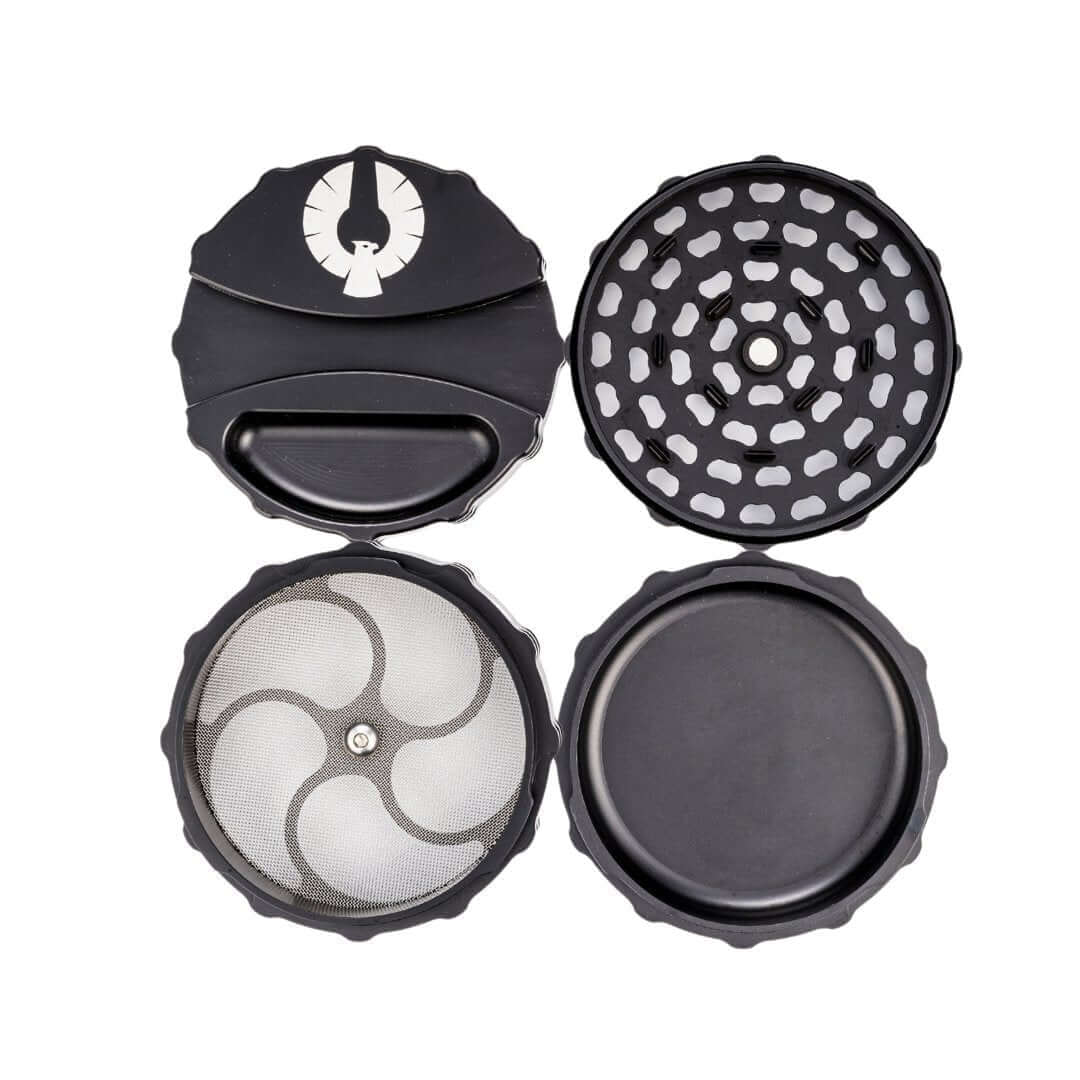Your Cart is Empty
FREE Shipping Over $100
FREE Shipping Over $100
Shop Herb Grinders
Cannabis Testing and Quality Control: Ensuring Safety and Potency
August 25, 2024 3 min read
Cannabis Testing and Quality Control: Ensuring Safety and Potency
In the burgeoning world of cannabis, cannabis lab testing and marijuana product quality assurance are paramount. These processes are not just a compliance formality; they are crucial for ensuring the safety and efficacy of cannabis products. As the industry grows, understanding the intricate details of testing regulations becomes essential for producers, consumers, and regulators alike.
The Importance of Cannabis Lab Testing
Cannabis testing is the backbone of quality control in the cannabis industry. It ensures that products are safe for consumption and consistent in their potency. Laboratories test for a variety of factors, including cannabinoid profiles, terpene levels, and the presence of contaminants like pesticides, heavy metals, and residual solvents.

Advanced Scientific Techniques in Cannabis Testing
Recent advancements in testing technology have significantly improved the accuracy and efficiency of cannabis testing. Methods like high-performance liquid chromatography (HPLC) and gas chromatography-mass spectrometry (GC-MS) are commonly used for precise cannabinoid profiling. These technologies are essential for ensuring product consistency and potency.
-
Chromatography in Cannabinoid Profiling: High-performance liquid chromatography (HPLC) and gas chromatography (GC) are instrumental in cannabinoid profiling. HPLC is particularly effective in separating and quantifying cannabinoids in their acid forms, crucial for understanding the potency and effects of cannabis products.
-
Mass Spectrometry for Contaminant Analysis: Coupling GC with mass spectrometry (MS) allows for the precise detection of trace levels of contaminants such as pesticides, solvents, and heavy metals. GC-MS is renowned for its sensitivity and specificity, making it a gold standard in cannabis contaminant analysis.
-
Terpene Analysis and Its Importance: Terpenes, the aromatic compounds in cannabis, are analyzed using GC and HPLC. Understanding the terpene profile is essential for determining the flavor, aroma, and potential therapeutic effects of cannabis products.

Quality Assurance Through Analytical Science
Quality assurance in the cannabis industry is not merely about compliance; it's a science-driven process aimed at ensuring product consistency and safety. From the cultivation of cannabis plants to the final product, scientific methods are employed to monitor quality. This includes environmental testing in cultivation facilities, residual solvent analysis post-extraction, and stability testing of final products.
Navigating Marijuana Product Quality Assurance
Quality assurance in the marijuana industry involves stringent processes to guarantee that products meet the highest standards. This includes not only lab testing but also careful monitoring of the cultivation, harvesting, processing, and packaging stages. Quality assurance is critical for maintaining consumer trust and adherence to regulatory standards.
Quality Assurance Through Analytical Science
Quality assurance in the cannabis industry is not merely about compliance; it's a science-driven process aimed at ensuring product consistency and safety. From the cultivation of cannabis plants to the final product, scientific methods are employed to monitor quality. This includes environmental testing in cultivation facilities, residual solvent analysis post-extraction, and stability testing of final products.
Cutting-Edge Tech in Cannabis Labs
Imagine laboratories using futuristic technologies that seem straight out of science fiction. Recent advances in cannabis testing technology, like AI-driven data analysis and blockchain for traceability, are turning these imaginations into reality. These technologies not only enhance testing accuracy but also bring a new level of excitement and innovation to the industry.
The Biosynthesis Buzz
One of the most intriguing developments is the advent of cannabinoid biosynthesis. This process, akin to brewing beer but for producing cannabinoids, is a game-changer. It opens up a world of possibilities, from creating rare cannabinoids to ensuring consistent product quality, and it's stirring up both excitement and debates in the industry.
Understanding Testing Regulations
The regulatory landscape for cannabis testing is complex and varies by jurisdiction. These regulations dictate the types of tests required, acceptable levels of contaminants, and labeling requirements. Keeping abreast of these regulations is vital for compliance and ensuring that products are legal and safe.
The Role of Third-Party Testing Labs
Third-party testing labs play a critical role in the cannabis industry. They provide an unbiased assessment of cannabis products, ensuring that they meet regulatory standards and consumer expectations. The independence of these labs is key to maintaining integrity in the industry.

Challenges in Cannabis Testing
Despite advancements, challenges remain in cannabis testing. These include the standardization of testing methods, variability in state regulations, and the high cost of testing. Addressing these challenges is essential for the continued growth and legitimization of the cannabis industry.
Ensuring Safety and Potency
At the heart of cannabis testing and quality control is the commitment to safety and potency. Rigorous testing and quality assurance practices ensure that consumers receive products that are not only effective but also safe from harmful contaminants.
Conclusion
Cannabis testing and quality control are integral to the integrity and success of the cannabis industry. As the industry evolves, continued emphasis on rigorous testing and adherence to regulations will be crucial in ensuring the safety, potency, and overall quality of cannabis products.
Also in The Grind

Understanding Cannabis Terpenes: Enhancing Your Experience
November 02, 2025 5 min read
Terpenes play a crucial role in the flavor and effects of cannabis, yet they’re often overlooked. This article breaks down what terpenes are, how they work with cannabinoids, and how to use them to tailor your cannabis experience. Discover the science behind the smells and effects of your favorite strains.

The Endocannabinoid System: How Cannabis Interacts with Our Bodies
October 19, 2025 2 min read
Continue Reading
The Ultimate Grinder Guide: How to Choose the Right Grinder for You
October 10, 2025 3 min read
Continue Reading






